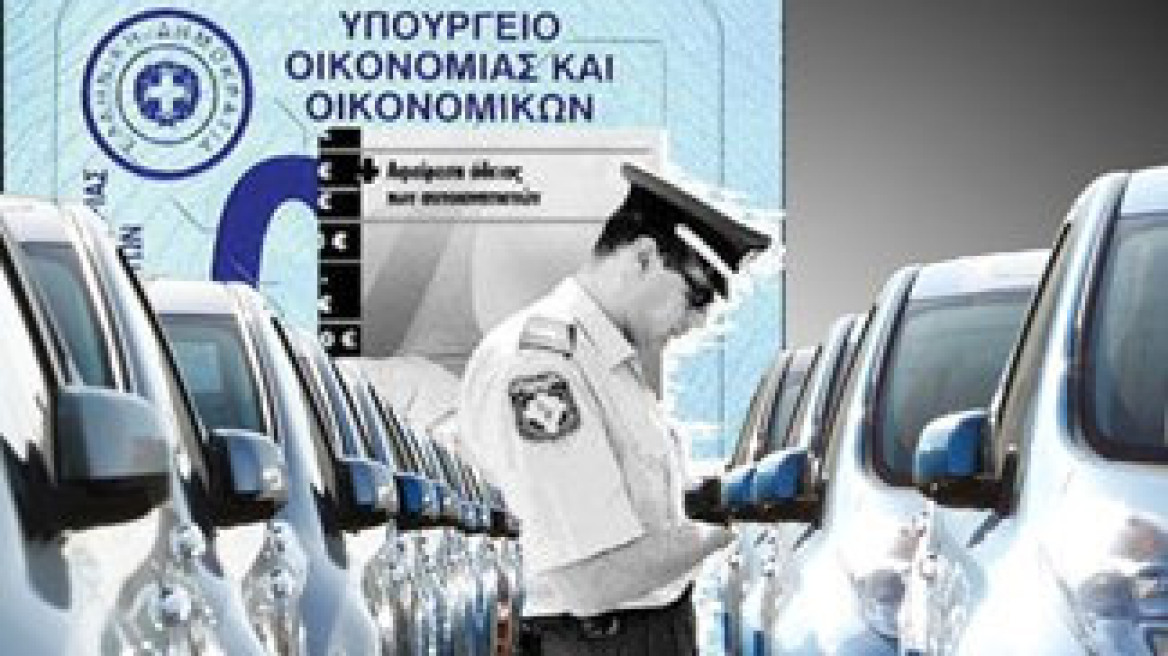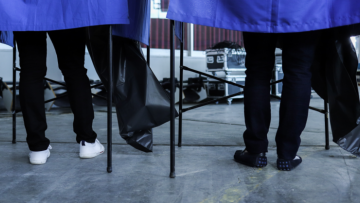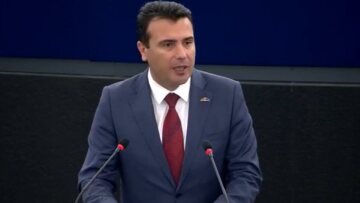
IRS “blocks” for vehicular taxes
IRS “blocks” for vehicular taxes
Tax authorities are preparing to send missives to the car owners who did not pay the taxes last year. The Ministry of Finance will review them for other possible debts to the state in order to promptly put some money in the state coffers.

Tax authorities are preparing to send missives to the car owners who did
not pay the taxes last year. The Ministry of Finance will review them
for other possible debts to the state in order to promptly put some
money in the state coffers.
The ministry sent a circular to tax authorities and requested of them to initiate crosschecks of vehicle taxes in 2010. They will be compared with payments in 2008, when the last similar check was carried out and, according to the order, possible vehicle tax debts from other years will be checked too.
Firstly, the taxpayers will be asked to provide explanations and, if finally it is proven that they themselves or other ownersshould have paid the fees, they will be charged retroactively and with interest.
Tax authorities have been instructed to thoroughly investigate "the ownership of the vehicle for the years in which a debt occurs" because, according to the standard provisions concerning the taxation of vehicles, "the obligation to pay the vehicle taxes and fines is distinct and lies upon the current vehicle owner.
Fines for IRS mistakes too
To avoid the charge, one must prove that the vehicle was legally exempted from taxes, or that another owner owed it.
The ministry sent a circular to tax authorities and requested of them to initiate crosschecks of vehicle taxes in 2010. They will be compared with payments in 2008, when the last similar check was carried out and, according to the order, possible vehicle tax debts from other years will be checked too.
Firstly, the taxpayers will be asked to provide explanations and, if finally it is proven that they themselves or other ownersshould have paid the fees, they will be charged retroactively and with interest.
Tax authorities have been instructed to thoroughly investigate "the ownership of the vehicle for the years in which a debt occurs" because, according to the standard provisions concerning the taxation of vehicles, "the obligation to pay the vehicle taxes and fines is distinct and lies upon the current vehicle owner.
Fines for IRS mistakes too
To avoid the charge, one must prove that the vehicle was legally exempted from taxes, or that another owner owed it.
So, taxpayers will have to provide any documentary evidence that will demonstrate they do not owe any taxes. Even if they have paid them but the system shows the opposite, they must provide proof of payment for the time the taxes should have been paid.
If the IRS is satisfied with the explanations that the citizen has taken all the necessary legal actions but they are not listed in the Vehicle Information System, the taxpayer is exempt and the mistakes corrected.
Possible debts for other vehicles, which are not declared in the individual’s tax statement but are owned by the same person, will be checked based on the owner’s AFM number.
For each car that shows unpaid vehicle taxes from previous years, the owner’s AFM number will be checked on the revenue subsystem of TAXIS "taxpayer’s profile" to make sure that vehicle taxes were paid for the proper registration number.
The way to pay off the debt
The total amount of the certificate will be paid in six equal monthly installments. The first installment will be paid by the last working day for public services of the month following the confirmation date, and for each of the following, by the last working day for public services of the respective subsequent months.
If the total debt indicated by the certificate is up to one hundred and fifty euros, then it is paid as a lump sum by the last working day for public services on the month following the confirmation of the debt.
The fines in detail
For private vehicles and motorbikes, as well as SUV-type cars, the fines are as follows:
1. For vehicles which account for less than 30 euros of vehicle tax, the fine is 30 euros.
2. For vehicles which account for a vehicle tax of more than 30 euros, the fine will be the amount of vehicle tax that corresponds to engine capacity and carbon dioxide emissions.
3. In case of non-payment or late payment of the special tax for large capacity vehicles, the relevant IRS office imposes a fine set at 1% of the owed special tax due for each month of delay or non-payment.
4. If the vehicle is exempt from traffic taxes, the penalty for the late supply of the special badge is equal to half the traffic taxes corresponding to the cylinders of the engine or the carbon dioxide emissions, except where the attributable taxes are less than 30 euros, so the fine is 30 euros as well.
For the rest of the vehicles (trucks and buses, public or private, passenger vehicles of public or private use, etc.), the fine is limited to half of the traffic fees payable in each case. In a situation of joint ownership, all co-owners are responsible for taxes and fines.
If the IRS is satisfied with the explanations that the citizen has taken all the necessary legal actions but they are not listed in the Vehicle Information System, the taxpayer is exempt and the mistakes corrected.
Possible debts for other vehicles, which are not declared in the individual’s tax statement but are owned by the same person, will be checked based on the owner’s AFM number.
For each car that shows unpaid vehicle taxes from previous years, the owner’s AFM number will be checked on the revenue subsystem of TAXIS "taxpayer’s profile" to make sure that vehicle taxes were paid for the proper registration number.
The way to pay off the debt
The total amount of the certificate will be paid in six equal monthly installments. The first installment will be paid by the last working day for public services of the month following the confirmation date, and for each of the following, by the last working day for public services of the respective subsequent months.
If the total debt indicated by the certificate is up to one hundred and fifty euros, then it is paid as a lump sum by the last working day for public services on the month following the confirmation of the debt.
The fines in detail
For private vehicles and motorbikes, as well as SUV-type cars, the fines are as follows:
1. For vehicles which account for less than 30 euros of vehicle tax, the fine is 30 euros.
2. For vehicles which account for a vehicle tax of more than 30 euros, the fine will be the amount of vehicle tax that corresponds to engine capacity and carbon dioxide emissions.
3. In case of non-payment or late payment of the special tax for large capacity vehicles, the relevant IRS office imposes a fine set at 1% of the owed special tax due for each month of delay or non-payment.
4. If the vehicle is exempt from traffic taxes, the penalty for the late supply of the special badge is equal to half the traffic taxes corresponding to the cylinders of the engine or the carbon dioxide emissions, except where the attributable taxes are less than 30 euros, so the fine is 30 euros as well.
For the rest of the vehicles (trucks and buses, public or private, passenger vehicles of public or private use, etc.), the fine is limited to half of the traffic fees payable in each case. In a situation of joint ownership, all co-owners are responsible for taxes and fines.
Ακολουθήστε το protothema.gr στο Google News και μάθετε πρώτοι όλες τις ειδήσεις
Δείτε όλες τις τελευταίες Ειδήσεις από την Ελλάδα και τον Κόσμο, τη στιγμή που συμβαίνουν, στο Protothema.gr
Δείτε όλες τις τελευταίες Ειδήσεις από την Ελλάδα και τον Κόσμο, τη στιγμή που συμβαίνουν, στο Protothema.gr
ΡΟΗ ΕΙΔΗΣΕΩΝ
Ειδήσεις
Δημοφιλή
Σχολιασμένα






































